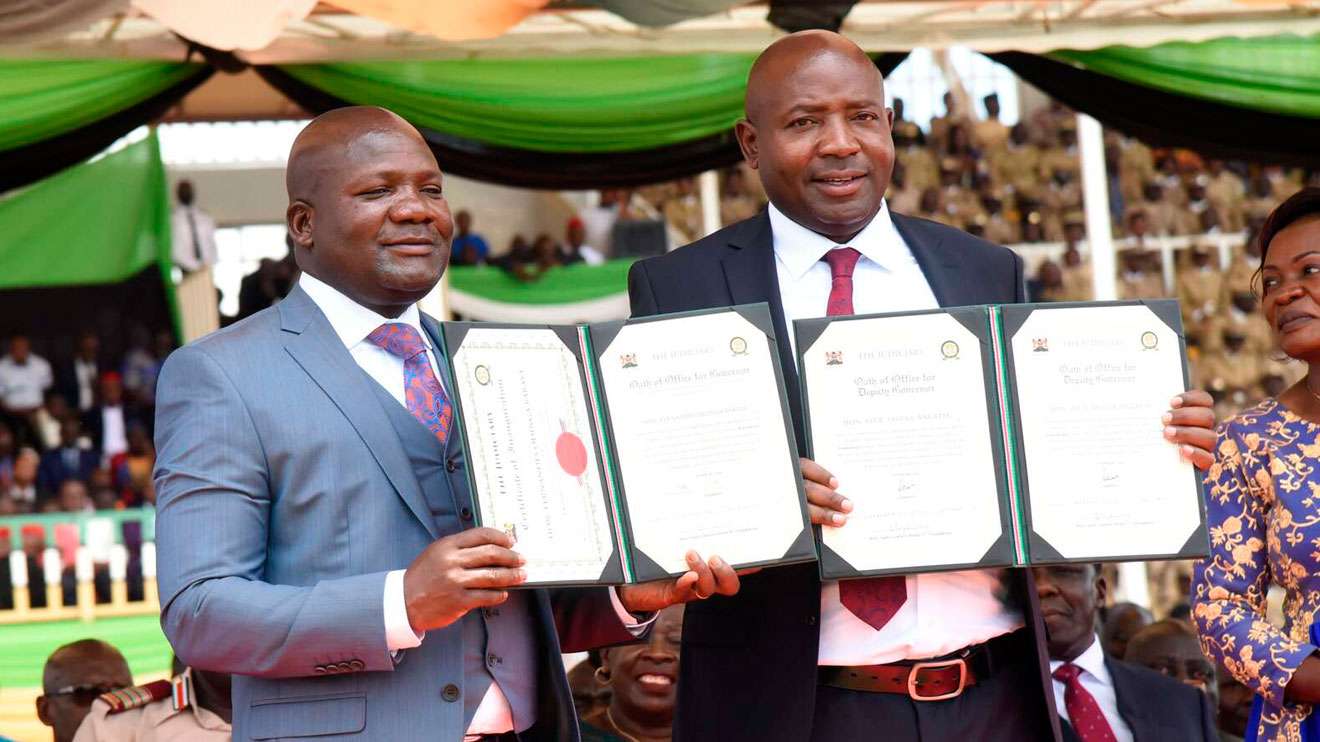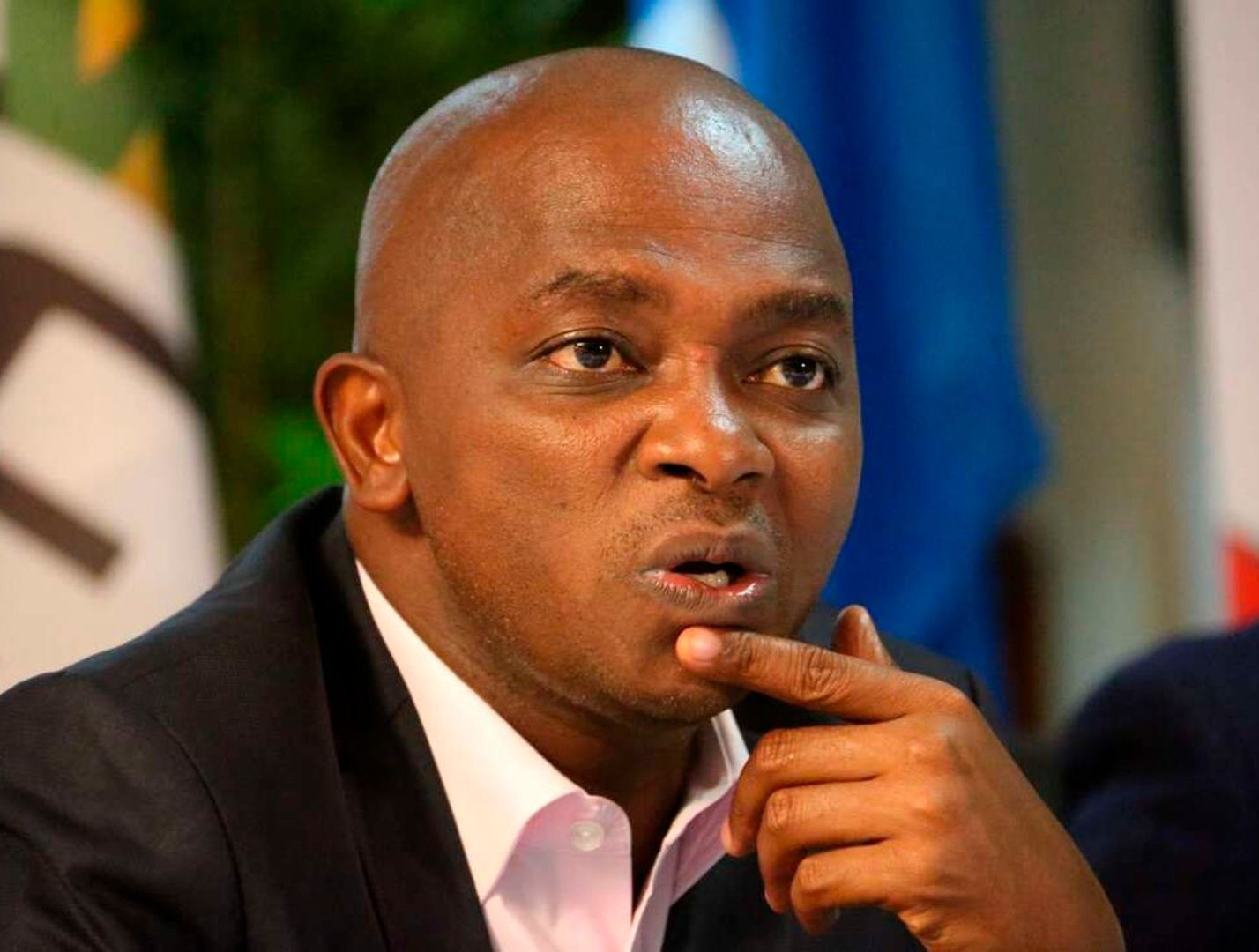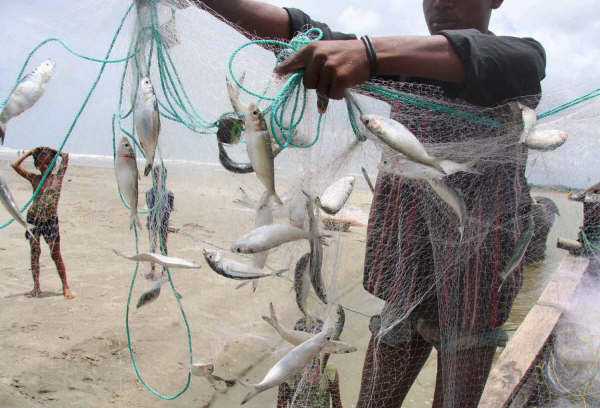Savula claimed at the time that he shared executive power equally with Mr. Baraza and that the county government was to be divided into two where he would lead one half, while Baraza was to lead the other half. He therefore stated that he should not be referred to as a deputy governor but as a co-governor. “Constitutionally, Kakamega has ten ministries. Barasa amechukua ministries tano na mimi nimechukua tano”
Last week’s cabinet reorganization by Kakamega Governor Fernandes Baraza has created bad blood between him and his deputy Ayub Savula. In the new changes, Mr Savula lost his position as CEC for Trade, Industrialization, and Tourism, he was handed the mandate to oversee operations across all the ministries and departments but analysts claim the new position is inferior to his old docket.
Mr. Savula has been left with no docket to control directly, this leaves him at the mercy of Governor Barasa in line with Section 32 of the County Governments Act, which states that the Deputy Governor shall deputize for the Governor in executing the governor’s functions. The Governor may assign the Deputy Governor any other responsibility or portfolio as a member of the County Executive Committee. The law is also clear that the governor may not necessarily assign the DP any duties apart from those outlined in Section 32 of the County Governments Act, under such circumstances; Mr Savula remains a ceremonial figure.
The fallout between Mr. Savula and Governor Barasa started soon after the two were elected to office. In his first address, Savula claimed that he was a co-governor and not a deputy and that everything in the county government, including CS positions, was to be divided equally between him and the governor. Savula claimed at the time that he shared executive power equally with Mr. Baraza and that the county government was to be divided into two where he would lead one half, while Baraza was to lead the other half. He therefore stated that he should not be referred to as a deputy governor but as a co-governor. “Constitutionally, Kakamega has ten ministries. Barasa amechukua ministries tano na mimi nimechukua tano”. Savula said at the time.
Sources now say Mr. Savula and his boss Baraza are embroiled in some nasty ideological differences to do with the idea of working closely with President William Ruto and his administration. Lately, governor Baraza has forged a close working relationship with the president, an idea that does not seem to sit well with Mr. Savula.
During the president’s recent working tour of Western Kenya, governor Barasa hosted him at his home for dinner raising eyebrows and prompting varied mixed reactions from the public. The governor in a quick rejoinder said he would not apologize for working with the president. He dismissed assertions that he had switched from the Raila Odinga-led ODM party to President Ruto’s UDA.
Political analysts now say that Governor Baraza was forced by circumstances to work with President Ruto’s administration after the Ethics and Anti-Corruption Commission (EACC) recommended that he be charged with corruption offences at Kakamega County and at Ketraco, where he served as CEO before venturing into politics. Once a governor is charged in court with an offence of corruption in Kenya, he cannot access his official office until the case is heard and determined.
Should the DPP recommend that he be prosecuted, governor Baraza will be forced to run the county affairs from outside the official gazette governor’s office, leaving Mr. Savula to run the show. Sources also divulged that the governor has fallen out with Raila Odinga and his ODM party after reading the signs that he might not be the party’s choice in 2027.




